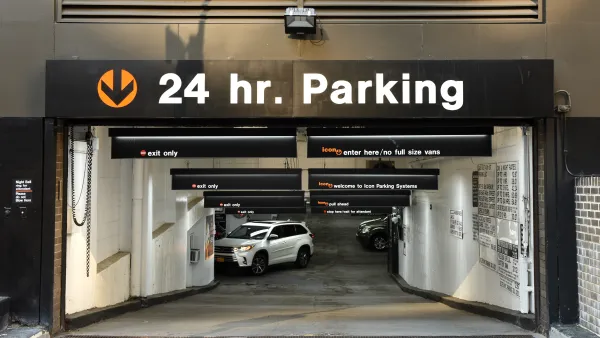Ryan Avent offers a counterpoint to a recent article critiquing the urban economic theories of Richard Florida, arguing that the movement of people and the "creative class" to cities based on employment is the heart of urban economics.
Avent counters a piece by Alec MacGinniss in The American Prospect that challenges the wisdom of Florida's assessment of the future of post-manufacturing American cities. Avent argues that Florida is correct in his assertion that creative people flock towards other creative people, and that some cities just don't have that pull.
"That tautology doesn't just lie at the heart of Florida's theory; it describes the actual functioning of urban economies. The value in economically dynamic cities is the people that populate them. Where once, firms would pay high land prices to be near coal deposits or harbors, based on the economic advantages those amenities conferred, they now pay high land prices to be near talent. This yen to concentrate in particular areas has a number of dynamics. Firms want to be near customers and clients. Workers want to be near firms. Firms want to be near workers. Where there are lots of firms and workers, there will also be businesses serving those workers - in business and in the provision of consumption opportunities - and those services attract additional firms and workers. Everyone wants to be where everyone is, and it's tough for anyone to go somewhere else because somewhere else is where people aren't.
The result is an urban geography that's very lumpy. People clump together, because there are gains to doing so.
But what makes a successful clump changes over time."
FULL STORY: Understanding the Rise and Fall of Urban Economies

Analysis: Cybertruck Fatality Rate Far Exceeds That of Ford Pinto
The Tesla Cybertruck was recalled seven times last year.

National Parks Layoffs Will Cause Communities to Lose Billions
Thousands of essential park workers were laid off this week, just before the busy spring break season.

Retro-silient?: America’s First “Eco-burb,” The Woodlands Turns 50
A master-planned community north of Houston offers lessons on green infrastructure and resilient design, but falls short of its founder’s lofty affordability and walkability goals.

Test News Post 1
This is a summary

Analysis: Cybertruck Fatality Rate Far Exceeds That of Ford Pinto
The Tesla Cybertruck was recalled seven times last year.

Test News Headline 46
Test for the image on the front page.
Urban Design for Planners 1: Software Tools
This six-course series explores essential urban design concepts using open source software and equips planners with the tools they need to participate fully in the urban design process.
Planning for Universal Design
Learn the tools for implementing Universal Design in planning regulations.
EMC Planning Group, Inc.
Planetizen
Planetizen
Mpact (formerly Rail~Volution)
Great Falls Development Authority, Inc.
HUDs Office of Policy Development and Research
NYU Wagner Graduate School of Public Service




























